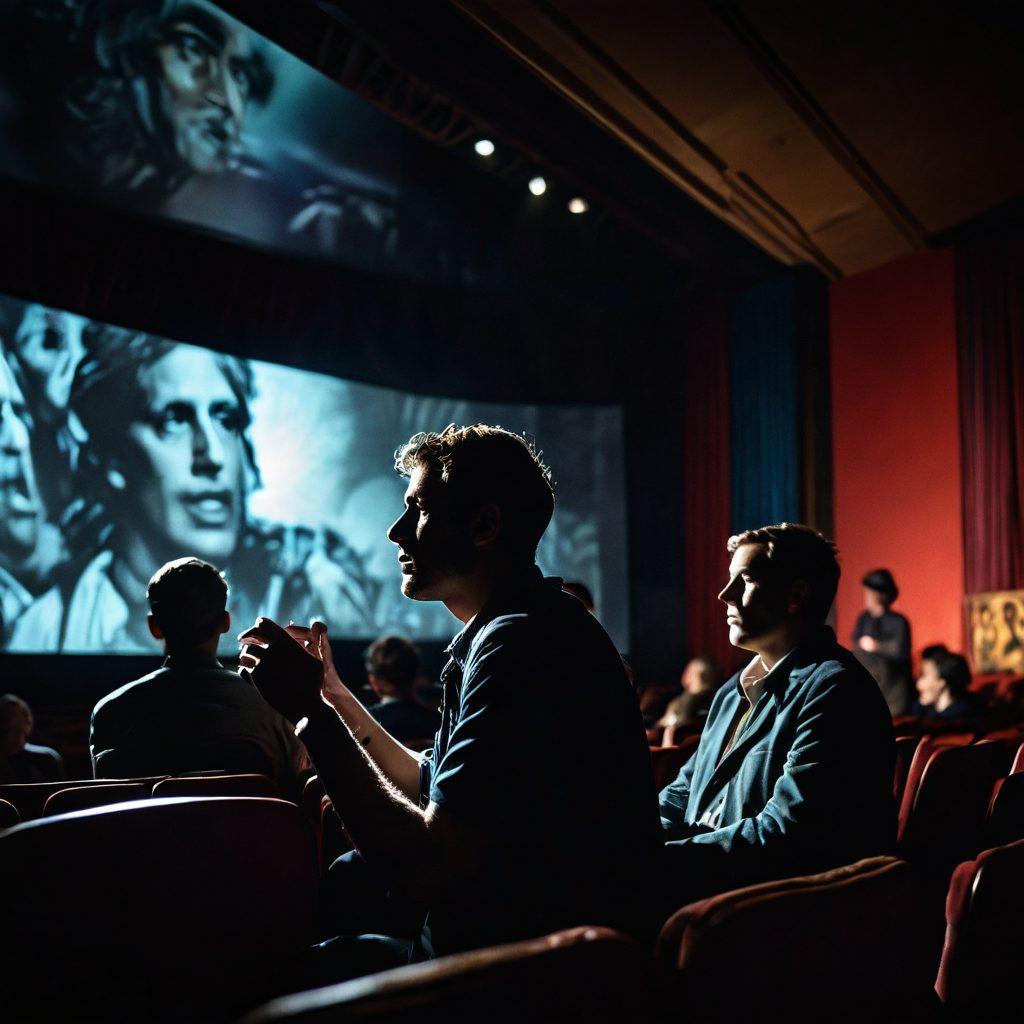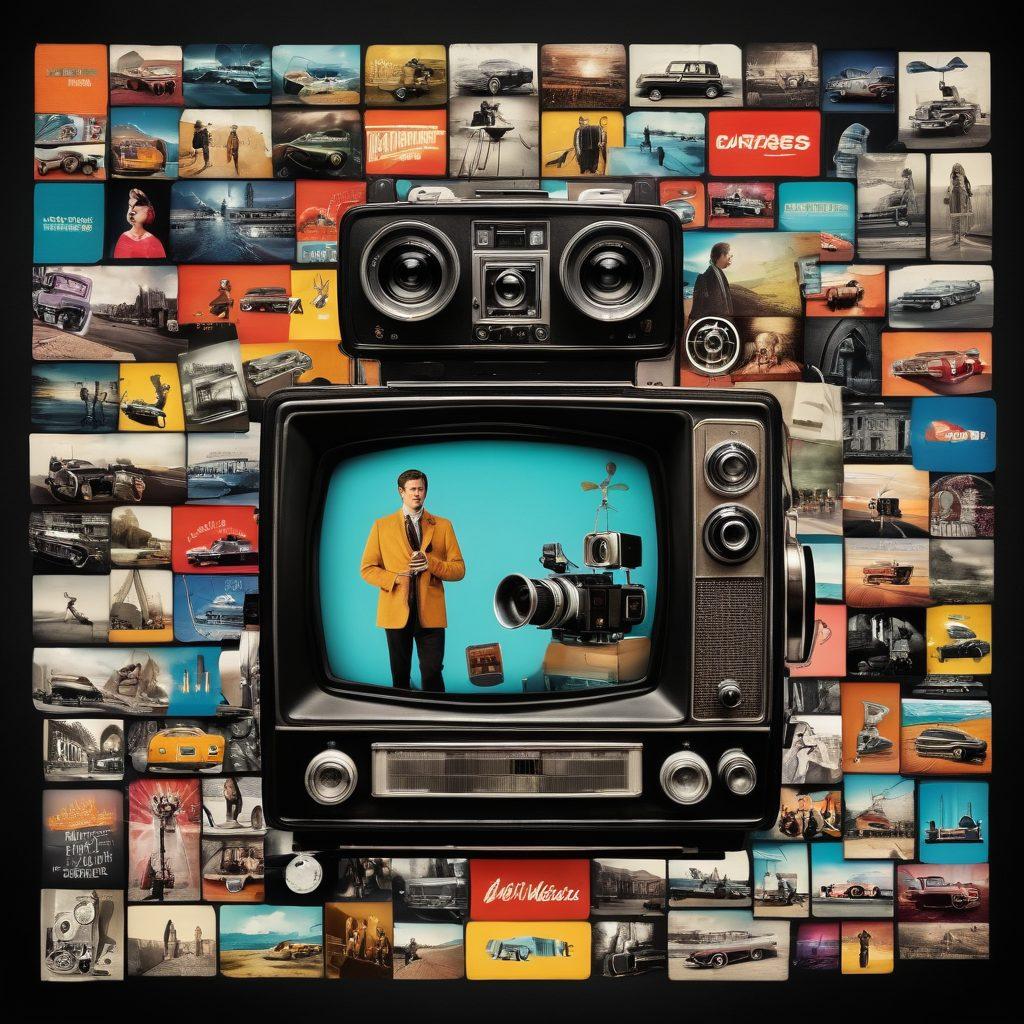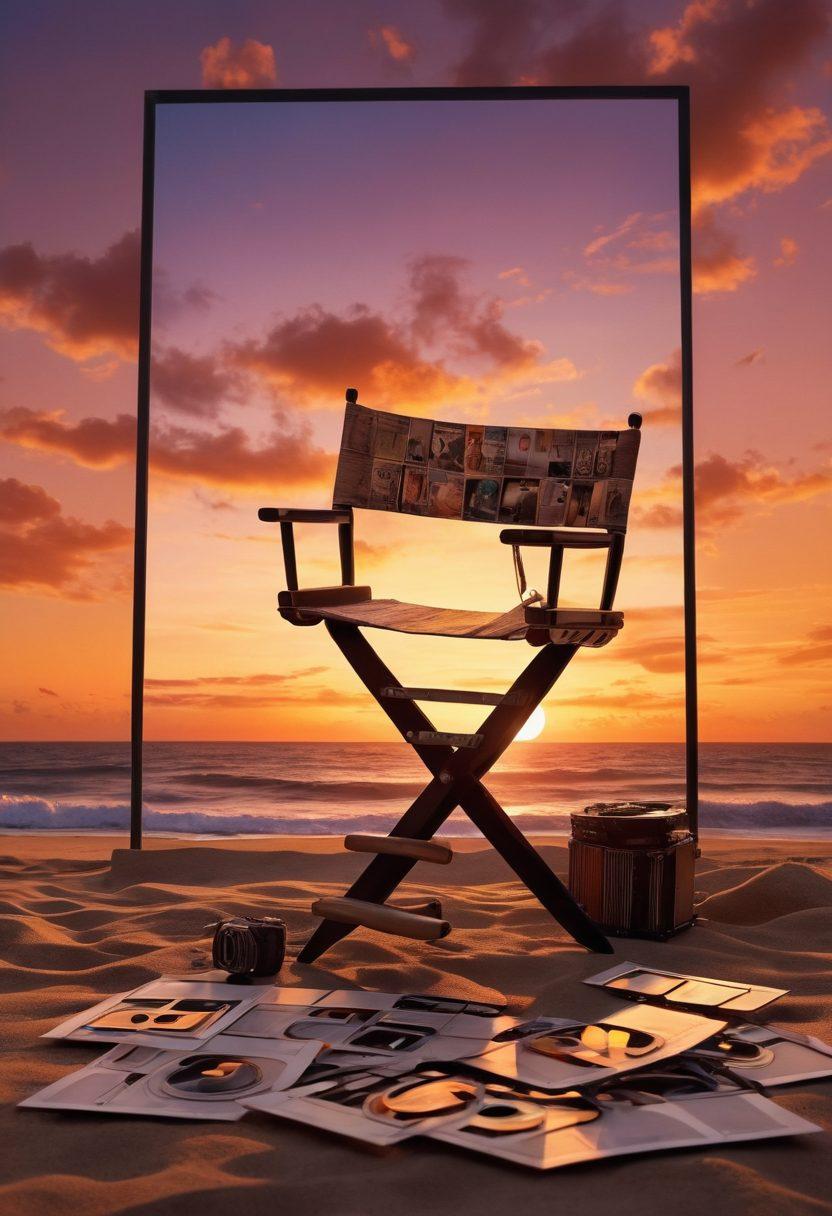Exploring the Truth: A Deep Dive into Reality Cinema and Documentary Filmmaking
Reality cinema has transformed the way we perceive the world around us, blurring the lines between fact and fiction. The proliferation of reality programming and television documentaries has led audiences to grapple with the question: what is the truth? As we delve deeper into this intriguing genre, we uncover how these films challenge our understanding of genuine human experience. Are we watching true story films, or are they merely a fanciful interpretation of reality? Join us as we unwrap the threads of reality cinema and its powerful influence on our cultural narratives.
In the motion picture industry, the term 'factual entertainment' holds more significance than ever. It begs a discussion regarding authenticity and artistic representation in film commentary. With so many cinematic reviews popping up across media blogs, filmmakers now feel a mounting pressure to present their narratives as part of a grand truth. But is this pursuit genuinely reflective of reality, or are filmmakers entangled in a web of exaggerated storytelling? This essential tension makes documentary filmmaking a captivating subject of film analysis that has implications far beyond the screen.
The effectiveness and appeal of cultural films often come from their ability to provoke thought and challenge societal norms. For instance, in documentaries, characters are often presented in their raw, unfiltered selves. This brings authenticity and emotion to the forefront, as viewers become engaged not just as spectators, but as partakers in the characters' journeys. When engaging with film critique and reviews, one must ask: do these portrayals contribute positively to our understanding of truth, or do they reinforce stereotypes? After all, entertainment journalism has the power to influence public perception profoundly.
Imagine sitting in a film festival, the air thick with anticipation as the lights dim and the screen illuminates with a narrative that feels too close to home. As the audience collectively holds their breath, one cannot help but ponder: what is truth in this art form? This question echoes throughout the realm of reality cinema, inviting viewers to tap into their own emotions and experiences. The best documentaries serve as windows into the human condition, offering not only entertainment but also momentary glimpses into our shared reality, sparking a cultural discourse that transcends boundaries.
Reality cinema isn’t just a genre; it is a reflection of the times we live in. With continuous film updates and an ever-expanding pool of movie insights, this genre fuels discussions around ethics in screenwriting and drives us to consider how we engage with the world. Moreover, as digital platforms reshape access to cinematic experiences, the power of reality programming becomes amplified. Perhaps the most compelling takeaway is that each viewing experience holds the promise of self-reflection. Are we simply passive consumers of these narratives, or do we have the agency to shape our understanding of truth through our discerning lens? The answers lie in the captivating stories we choose to embrace.
From Documentaries to Reality Programming: The Evolution of Factual Entertainment
In the age of binge-watching and digital streaming, factual entertainment has seamlessly woven its way into the very fabric of our viewing habits. The transformation from traditional documentaries to the myriad forms of reality programming sparks curiosity: How did we reach this point? What role do cultural films play in shaping our understanding of reality? Join me as we embark on an exciting journey to uncover the evolution of this genre, from documentaries to reality programming, significantly impacting the motion picture industry.
Let's rewind the clock to an era when television documentaries dominated the airwaves. Remember those evenings spent glued to the screen, experiencing riveting true stories that stirred emotions and prompted discussions? The genre has come a long way since then. Today, we're inundated with various forms of entertainment journalism—a cocktail of drama, emotion, and entertainment. The question arises: Are we, as an audience, ready to embrace the blend of fact and fiction that reality cinema serves up?
Cinematic reviews and film analysis have gained traction, largely thanks to platforms that celebrate entertainment critique. What resonates with you: the raw authenticity of a well-crafted documentary or the glossy narrative of a reality show? Speaking of reality, consider the plethora of reality programming available today—from heartwarming family dynamics to intense survival challenges. It's a fascinating transformation that leads us to explore deeper questions about our perceptions of truth. Are we drawn in by the authenticity, or is it merely captivating storytelling that captures our hearts?
As both the art of screenwriting and the style of filmmaking converge, we see a distinct evolution within documentary filmmaking. Central themes of cultural relevance emerge, now more than ever, during film festivals where these works resonate with wider audiences. This fusion of artistic vision and the demands of entertainment journalism creates a unique space for filmmakers to reflect our world. Are we witnessing a revival in interest for factual entertainment that is both thought-provoking and accessible?
The rapid growth of media blogs and discussion forums has paved the way for a new wave of film critique—think captivating video blogs that dissect the layers of storytelling in both documentaries and reality shows. With film updates at our fingertips, enthusiasts can engage with movie insights like never before. As these realities unfold before our eyes, what implications do they have for future generations of filmmakers and audiences? One thing is clear: as we explore the evolution from documentaries to reality programming, we are witnessing a reflection of our cultural narrative, reminding us that the stories we tell today are the legacies we leave for tomorrow.
Behind the Lens: A Comprehensive Film Analysis of Cultural Films and True Stories
As we journey into the world of reality cinema and documentary filmmaking, a fascinating narrative unfolds—one that is rich with culture, true stories, and the power of visual storytelling. Films that explore real-life events, often referred to as cultural films, hold a mirror up to society, reflecting both the extraordinary and the mundane in ways that resonate deeply with audiences. Have you ever sat back and pondered what makes a documentary powerful? What transforms a simple video blog into an impactful piece of entertainment journalism? Let’s delve deeper into this enthralling subject and discover the intricacies of film analysis and critique that lie behind the lens.
Documentary filmmaking is much more than simply capturing events as they unfold; it’s about crafting a narrative that moves and inspires. The careful art of film commentary often blends factual entertainment with compelling storytelling, offering viewers both insights and emotional connections. Consider the film festivals that showcase these incredible true story films. Each screening serves as a platform for filmmakers to present their vision—capturing gritty realities that challenge our perspectives. As we consume these cinematic reviews, do we not also reflect upon our own beliefs and experiences?
At the heart of reality programming is a quest for authenticity, one that challenges the boundaries of traditional filmmaking. Such formats have transformed how we consume media, pushing forward the evolution of entertainment. Yet, one must ask: how far do we go in the pursuit of realism? With the rise of sensationalized narratives, it’s crucial to engage in deeper film critique and understand how these portrayals affect society. Every frame in a documentary is carefully chosen; every interview meticulously planned in the name of truth. This passion for storytelling is what we celebrate in the motion picture industry, isn’t it?
A crucial element of cultural films is their ability to speak to shared human experiences. They invite us into narratives that span continents and cultures, showcasing diverse perspectives. As we analyze these cinematic gems, we must consider how they fit into the larger context of societal norms and the pressing issues of the times. From television documentaries highlighting climate change to films illustrating the migrations of people across borders, each narrative weaves a rich tapestry reflecting the complexities of our world. What can we learn from these stories, and how do they inspire us to act?
In conclusion, the world of documentary filmmaking and reality cinema is not just about what we see on screen; it’s about the emotions, reflections, and changes that arise from those experiences. Whether you are a casual viewer or a budding filmmaker yourself, engaging with this content opens up a world of insights—insights that can lead to thoughtful conversations and actions. So, the next time you engage with a cultural film or a documentary, take a moment to really absorb it. What truths do you think are wrapped up in the cinematic storytelling? As you ponder this, remember that the powerful stories you see are not just entertainment; they are ultimately reflections of our interconnected lives.


